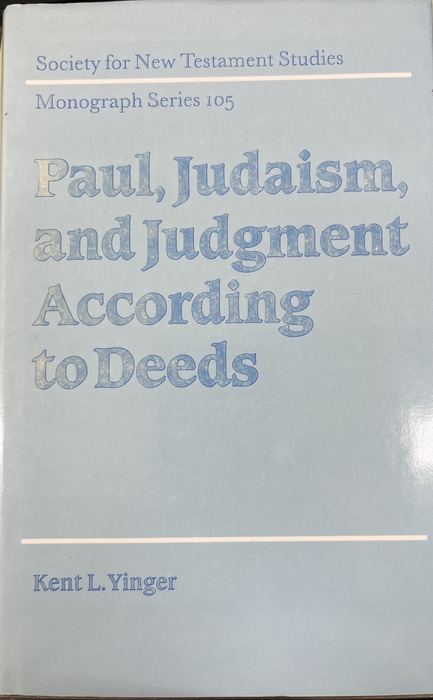
| Tác giả | : | Yinger, Kent L. |
|---|---|---|
| Nơi xuất bản | : | U.S.A.: Cambridge University Press, 1999 |
| Thông tin trách nhiệm | : | Kent L. Yinger |
| Mô tả vật lý | : | viv, 318pgs. Hardcover 24cm |
| Tóm tắt/ chú giải | : | Why does "judgment according to deeds" produce no discernible theological tension for Paul, the apostle of justification by faith? For students of his writings, paradox, incoherence, or eschatological tension come more readily to mind. Paul felt no such theological tension because there was none - neither within his own soteriology, nor in that of the Judaism from which he learned to speak of "judgment according to deeds." For both, salvation is wholly by God's grace and the saved will be repaid (i.e., saved or condemned) in accordance with what they have done. Thus, Paul can promise eternal life to those who "do good," while threatening wrath upon the disobedient (Rom. 2:6-11), and without undermining justification by faith. This thorough examination of second temple and Pauline texts interacts with recent discussions of "covenantal nomism," justification, and the "new perspective" on Paul to explore the Jewishness of the apostle's theology. |
| Đề mục | : | |
| Ngôn ngữ | : | Eng |
| DDC | : | 234 / K37-Y11 |
| SĐKCB | : |
|
Sách cùng khung phân loại

Why grace changes everything
Eugene, OR. U.S.A.: Harvest House Publishers, 1994


Paul’s Three Paths to Salvation
U.S.A: William B. Eerdmans Publishing Company, 2020


A Biblical Theology of the Doctrines of Sovereign Grace
U.S.A: Wipf and Stock, 2002


